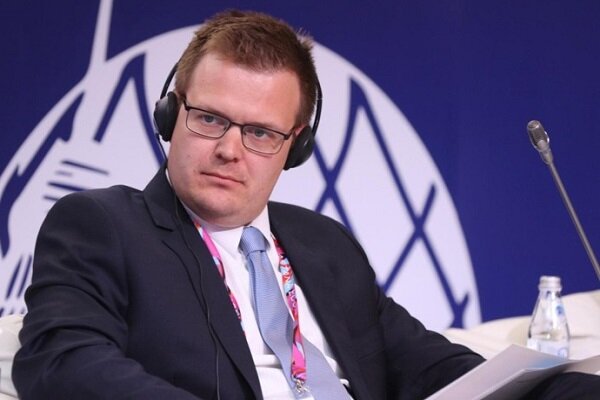Regional powers are engaged in diplomacy with Taliban: academic

TEHRAN – Calling for a multilateral Astana-like initiative, an associate professor from the University of South-Eastern Norway, says the regional powers prefer diplomacy with the Taliban.
“The regional powers are already engaged in diplomacy with the Taliban and I expect a multilateral Astana-like initiative to emerge,” Glenn Diesen tells the Tehran Times.
The Taliban are advancing at lightning speed across Afghanistan as U.S. troops withdraw. They now control about half of the country and are fighting for control of the other 50 percent. They may have even been slowing their advance on purpose.
Some political groups in Afghanistan are apprehensive about the Taliban’s rise, urging military action to counter the insurgent group.
However, it seems that neighboring countries try not to be engaged in the Afghanistan conflict, preferring to find a diplomatic solution to the country’s crisis.
Diesen says, “After the U.S. and NATO defeat in Afghanistan, there will be a vacuum and instability that should be addressed by the neighboring countries.”
The academic predicts “Eurasian solutions will be pursued” for the conflict with the involvement of countries such as Russia, China, Iran, and others.
Following is the text of the interview:
Q: How do you assess Russia-U.S. disputes under Putin-Biden presidencies? Is there a strategic rivalry or an economic competition?
A: Russia-U.S. disputes under Putin-Biden presidencies are defined primarily by strategic rivalry. On the Greater Eurasian continent spanning from the Atlantic to the Pacific Ocean, there are three large powers that oppose U.S. hegemony – Russia in the west, China in the east, and Iran in the south. This competition is fought with the military, economics, politics and information war. Economic sanctions have been a key instrument to weaken Russia in response to the rivalry over Ukraine.
Q: Apparently, the U.S. is planning to quit West Asia. Do you predict that Russia will fill the gap, especially after its presence in Syria?
A: The departure of the U.S. will create a vacuum that will be filled by other powers. However, Russia will seek multilateral cooperation with other states in the region. Russia is not the Soviet Union as it has neither the hegemonic intentions nor capability to replace the U.S. in the Middle East (West Asia). Russia has largely acted as a status quo power in the Middle East (West Asia) by preventing Western-backed regime change in Syria. Regime change in Syria could only have led to one of two unfavorable possibilities – either a pro-West/anti-Russian regime or a failed state run by ISIS or other extremist groups. Russia will therefore seek multilateral cooperation with other states in the region, such as Iran, that are able to take into account Russian security interests and harmonize policies. That being said, Russia will likely keep its naval base and airbase in Syria to cement its presence in the very strategic eastern Mediterranean.
Q: Do you think great powers, such as Russia and China, and regional powers like Iran and Turkey, launch can launch initiatives like the Astana process for Afghanistan?
A: Yes, the regional powers are already engaged in diplomacy with the Taliban and I expect a multilateral Astana-like initiative to emerge. After the U.S. and NATO defeat in Afghanistan, there will be a vacuum and instability that should be addressed by the neighboring countries. I, therefore, think that Eurasian solutions will be pursued, led by countries such as Russia, China, Iran and others.
Ideally, there will be some power-sharing arrangement between the different political groups in Afghanistan as the neighboring countries are apprehensive about the Taliban’s intentions. Russia will seek to prevent the destabilization of Tajikistan as it is a member of the Russian-led CSTO military alliance. China will aim to include Afghanistan in its trillion-dollar Belt and Road Initiative. Otherwise, the Shanghai Cooperation Organization (SCO) may be an ideal organization to stabilize Afghanistan to the extent it can include the participation of the regional powers – China, Pakistan, Russia, India and Iran.
Q: Do you think Russia and China are involved in a strategic coalition to counter the U.S. hegemony?
A: Russia and China have formed a Greater Eurasian partnership that continues to deepen. The strategic partnership is to a great extent motivated by the need to push back against the U.S. hegemonic ambitions, although the partnership has a stronger foundation as it is also founded on shared national interests unrelated to the U.S. The Greater Eurasian partnership is primarily geo-economic as they work towards establishing a regional economic architecture consisting of new strategic industries, technologies, transportation corridors, development banks, payment systems and currencies. Russia and China are attempting to include Iran, Pakistan, India, Central Asia, Europe and other parts of the Greater Eurasian continent into this new geo-economic architecture.
Q: What are the effects of U.S. sanctions on China and Russia's economy?
A: The U.S. sanctions against China and Russia create real economic problems; however, prolonged sanctions are also teaching China and Russia to adapt by learning to live without the United States. Russia responded to the sanctions from 2014 by ending its decades-long Greater Europe strategy that had aimed to integrate Russia with the West and replaced it with the Greater Eurasian strategy that prioritizes economic integration with the East. China has also responded to sanctions by creating parallel economic structures to reduce reliance on the United States. Russia and China are thus inoculating themselves against sanctions by ending their reliance on U.S. technologies, industries, transportation corridors, financial institutions and the dollar.
Leave a Comment